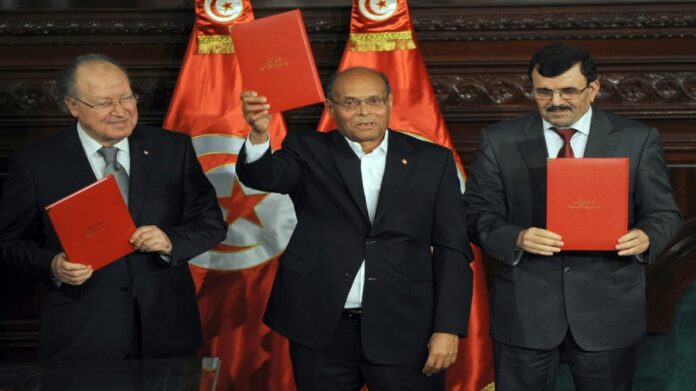June 1, 2021
June 1 coincides with the anniversary of the issuance of the first constitution of the republic in 1959, as well as the issuance of the document of the draft constitution of January 2014 and its submission to the vote on this day in 2013.
Why did the revolution bring about a new constitution, the drafting of which required 3 years? Did it succeed in the mission for which he was set?
Popular Demand
In this context, El-Habib Khedher, the general reporter of the constitution, told “JDD Tunisia” that it is not related to just a text that needs to be amended, because the 1959 constitution after 2011 is no longer trusted by the Tunisian people in particular, and it has had successive revisions that suit those who were benefiting from it.
Khedher added that the 1959 constitution lost its value as the supreme comprehensive text for all the people, as this was evidenced by the continuous sit-ins that demanded a new constitution since the early days of the revolution, noting that a statement issued by a group of civil organizations and activists on January 15th, that is, just a day after the fall of Ben Ali, proposing the idea of drafting a new constitution and thus was not just a station as much as one of the demands of the revolution, as he put it.
Did the 2014 Constitution Succeed in the Mission?
Due to the political crisis in which Tunisia is living and the power struggle between the two heads of the executive authority and the parliament, the constitution of 27 January 2017 has become the subject of criticism by many, and the demands for its revision are also followed by saying that it “disperses power and does not serve the economic and social situation that Tunisia knows.”
For his part, Habib Khedher affirmed that the current constitution is definitely, and better, compatible with the Tunisian reality and its requirements from the 1959 constitution, as it has achieved its primary goal of putting an end to the autocratic rule of the individual through the distribution of powers within the executive authority in addition to establishing independent bodies and a local authority to break with centralism.
Our interlocutor stressed that the launching of the philosophy and principles that the new constitution brought about is still stumbling because the defect is in the practice and not in the text itself, indicating that the absolute priority lies in dealing with it as a whole and then working to amend the defects in it, if any, according to his saying.
It is worth noting that the six-year report on the follow-up to the implementation of the Tunisian constitution and its embodiment at the level of the legal framework (April – September 2020) issued by the International Organization for the Report on Democracy, revealed that its implementation witnessed only slight progress with the issuance of two governmental orders related to the implementation of the Code of Local Communities, while several provisions Of the constitution is still not revalidated.
On the other hand, with the exception of the Independent High Electoral Commission, the rest of the independent constitutional bodies stipulated in Chapter Six of the Constitution have not been established, and this is the case for the Audiovisual Communication Commission, the Human Rights Commission, the Sustainable Development Commission, the Rights of Future Generations, and the Good Governance and Anti-Corruption Commission.











